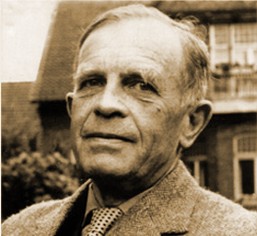Moral Leadership – Nobilitas Naturalis – William Ropke
Posted by Orrin Woodward on May 26, 2010
 I read the following paragraphs out of A Humane Economy by William Ropke in my daily study of economics. Readers of this blog may have noticed a recurring theme of late on the importance of leadership in economics to prevent social chaos in a disoriented world. William Ropke, a famous German economist, has captured the essence of the value of leadership in society by calling it the Nobilitas Naturalis. As you read Ropke’s thoughts, I encourage you to think of your own leadership journey and contemplate if you are living up to your full potentially in character, task and relationships. Are you ready to lead in the 21st century? Maybe it’s time to step out of the pack and lead at a new level? Thomas Jefferson called the new Aristocracy in America the Aristocracy of Achievement. What I love about Network Marketing is that you cannot hide leadership or the lack of leadership. People follow leaders in Network Marketing, not for titles, but because of the love and encouragement provided by you & your TEAM to them. Enjoy the article and lead your way into the Nobilitas Naturalis – The Aristocracy of Achievement. God Bless, Orrin Woodward
I read the following paragraphs out of A Humane Economy by William Ropke in my daily study of economics. Readers of this blog may have noticed a recurring theme of late on the importance of leadership in economics to prevent social chaos in a disoriented world. William Ropke, a famous German economist, has captured the essence of the value of leadership in society by calling it the Nobilitas Naturalis. As you read Ropke’s thoughts, I encourage you to think of your own leadership journey and contemplate if you are living up to your full potentially in character, task and relationships. Are you ready to lead in the 21st century? Maybe it’s time to step out of the pack and lead at a new level? Thomas Jefferson called the new Aristocracy in America the Aristocracy of Achievement. What I love about Network Marketing is that you cannot hide leadership or the lack of leadership. People follow leaders in Network Marketing, not for titles, but because of the love and encouragement provided by you & your TEAM to them. Enjoy the article and lead your way into the Nobilitas Naturalis – The Aristocracy of Achievement. God Bless, Orrin Woodward
In a sound society,” writes Wilhelm Ropke, leadership responsibility, and exemplary defense of the society’s guiding norms and values must be the exalted duty and unchallengeable right of a minority that forms and is willingly and respectfully recognized as the apex of a social pyramid hierarchically structured by performance. Mass society … must be counteracted by individual leadership-not on the part of original geniuses or eccentrics or will-o’ -the wisp intellectuals, but, on the contrary, on the part of people with courage to reject eccentric novelty for the sake of the ‘old truths’ which Goethe admonishes us to hold on to and for the sake of historically proved, indestructible, and simple human values.
In other words, we need the leadership of … “ascetics of civilization,” secularized saints as it were, who in our age occupy a place which must not for long remain vacant at any time and in any society. That is what those have in mind who say that the “revolt of the masses” must be countered by another revolt, the “revolt of the elite.” … What we need is true nobilitas naturalis. No era can do without it, least of all ours, when so much is shaking and crumbling away. We need a natural nobility whose authority is, fortunately, readily accepted by all men, an elite deriving its title solely from supreme performance and peerless moral example and invested with the moral dignity of such a life.
Only a few from every stratum of society can ascend into this thin layer of natural nobility. The way to it is an exemplary and slowly maturing life of dedicated endeavor on behalf of all, unimpeachable integrity, constant restraint of our common greed, proved soundness of judgment, a spotless private life, indomitable courage in standing up for truth and law, and generally the highest example. This is how the few, carried upward by the trust of the people, gradually attain to a position above the classes, interests, passions, wickedness, and foolishness of men and finally become the nation’s conscience.
To belong to this group of moral aristocrats should be the highest and most desirable aim, next to which all the other triumphs of life are pale and insipid …. No free society, least of all ours, which threatens to degenerate into mass society, can subsist without such a class of censors. The continued existence of our free world will ultimately depend on whether our age can produce a sufficient number of such aristocrats of public spirit. (A Humane Economy 130-131)
Sorry, the comment form is closed at this time.







